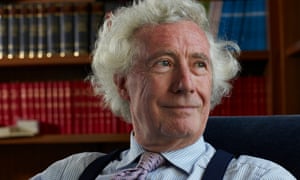It just been listening to a Reith Lecture given by Johnathan Sumption, (Justice of the Supreme Court) regarding the Human Rights Act.
The Act is a construct of lawyers, not of a political forum, such as Parliament and the fear is that decisions made by lawyers is less representative than law contrived through debate in Parliament.
The argument that lawyers are inherently selective, because of the structure of their educational and social construct, in the way they gain their experience about society is different from the politician where sufficient numbers of politicians are not from the legal profession and lend a different emotional construct to the social debate about human rights and what should be a human right.
The EU, and the USA are examples of where lawyers frame the law on these matters and the political establishment accept their ruling. The UK is different and along with a small number of parliamentary democracies insist that the law flows from parliamentary debate and procedure into the courts and not the other way round.
The concern that law belongs to the people and has to be seen as a confirmatory process and not something handed down by Judges was the basis of Johnathan Sumption's lecture and follows his first lecture on the expansion and encroachment of the legal fraternity into politics. He argues the law is taking over the space once occupied by politics at the expense of democracy.
This of course draws us into the view that democracy is and continues to be, skewed by political constructs such as 'first past the post' ballots which clearly differentiate against smaller and new entrants into the political debate. The vice like grip which the two main parties have over the seats in parliament stifle political debate and leave many of the electorate unrepresented. Part of society then does not have a voice and their views, which may, or may not have relevance to human rights is missing from the theoretical debate.
Much of the argument for democracy is theoretical in that assumes a high proportion of people will turn out to vote and that those that do are well versed in the debate. Clearly this is not the case and the pressure on democratic rule is that money and influence play such a high place in leading people to think in one way or another. The almost continual barrage of criticism and fake news about the European Institution from the likes of the Daily Mail, the Express and the Sun has distorted the EU in so many minds that when fundamental questions are put to the electorate they have no way of seeing through their bias.
It is assumed that the lawyers would rise above such bias but they to have their own bias, a professional bias which often excludes the experience of people living ordinary lives.
The danger of "we know what's best for you" is always there and whilst human rights should perhaps be an academic choice the reasoning of people who would wish to bring back the death penalty for certain crimes and the on going argument about the length of sentences, (usually commuted by 50%) or the recent release of people who the public consider should remain in jail, are never the less released by the parole board.
Perhaps 'they do know what's best' but as a society we have to feel that there is fairness and justice for the victim to.
This innate sense of what's right and what's wrong needs to find a balance amongst the general public otherwise consensus politics, which can not be part of the lawyers brief, is eroded and with it the essential trust society needs to function.

No comments:
Post a Comment